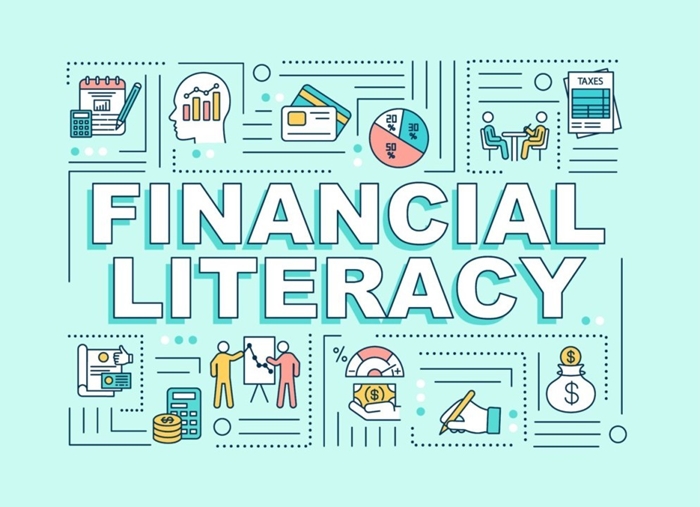In this article, we discussed the importance of financials literacy in school, we also talked about the meaning of financials literacy.
Definition
Financial literacy is the ability to understand and effectively use various financial skills, including personal financial management, budgeting, and investing. When you are financially literate, you have the crucial foundation for a smart relationship with money.
This also is the ability to use basic economic and financial concepts as well as the knowledge and skill to manage financial resources for a lifetime of financial well-being.
Importance of Financial Literacy in School
Our society lives in one of the stormiest periods in human history. With unlimited access to information, interconnection enabled by social media, and globalization in trade and other domains, it is a challenging task for an individual to direct one’s life and face the everyday challenges of the modern world. Effective survival in the 21st century requires an extraordinary level of responsibility and knowledge.
Financial Education on the Rise
Financial Literacy includes the knowledge of basic economic terms and strategies, and the ability to apply effective and wise financial decisions in everyday life. In general, people with better financial knowledge lead a more fulfilling and less stressful life as they can achieve financial freedom and their goals are more likely to be met in the future. Therefore, the earlier one starts educating themselves, the better.
This is gradually becoming more deceptive to the Departments of Education across the globe, as the inclusion of Financial Education in the curriculum is turning into an ordinary matter. According to the research conducted by GFLEC in 2021, Gen Z is the generation most likely to have participated in a financial education class or program. However, the same survey reveals that Gen Z has the lowest level of knowledge regarding finances and how to manage them. Nevertheless, financial literacy seems to generally increase with age, as previous generations, such as Gen Y, Gen X, or Baby Boomers, scored gradually higher on a financial literacy scale among people from different generations. Their expertise in the world of finance, however, comes from age and experience, as financial education did not traditionally use to be a part of a curriculum. This has changed in recent years, especially after the COVID-19 pandemic and the economic recession it caused.
Finances as a part of the syllabus across Europe
The leaders in financial education in the EU are certainly Poland and Portugal, which are applying programs, courses, and other projects in the lower education sector and incentivizing schools to include financial education in their study programs. This was done in response to the alarming numbers showing insufficient knowledge about financial matters among the population. In the UK, the application of financial education varies in different nations of the union. Still, usually, finances are taught through math’s, numeracy, or citizenship class and it is a common part of the primary and secondary school syllabuses. The lowest level of financial literacy in the EU is in Romania, with only 13% of the population being considered financially literate.
Economic concepts handy to know
So, what are some of the many economic terms that people should be familiar with to avoid financial difficulties and potential bankruptcy in the unrestrained world we live in? First of all, people should understand the principle of increase and decrease, and how it directly affects their money. During inflation, the price of goods and services rises due to absence and other factors. This causes money to essentially lose its value, which negatively impacts mainly those with a fixed income or the value of savings. Deflation, on the other hand, causes the price of goods to drop, which happens due to the lack of money in circulation or an abundance of goods on the market. Other important economic skills are credit and debt management, essential for making long-term economic decisions like getting a mortgage or a loan. We have to be able to effectively evaluate our financial status in order not to fall into debt when borrowing money. To do that, we should create a financial plan that outlines our assets, incomes, fixed expenses, etc. This allows us to set out achievable future goals without causing any financial difficulties. But perhaps the most fundamental skill is the skill of budgeting and saving. UNFCU proposes the so-called 50-30-20 rule, standing for needs, wants, and goals respectively.
However, for beginners, simply putting aside a small amount of money every time we receive some form of income is a perfect first step in how to responsibly treat our money and secure a financially stable future.
Conclusion
Although financial education is becoming mainstream in the educational sector, many people, including those who are just joining the workforce, have limited knowledge about money and how it works. This is gradually improving across the world as schools and universities include some sort of financial education in their syllabus, understanding its scale of importance. Financially educated individuals form a wealthy and economically strong society, therefore, the benefits of understanding money extend far beyond the needs of one person or a family. In today’s world, with an immense number of possibilities but also personal responsibilities, financial literacy stands as one of the key tools of survival.
READ: Personal Finance Tips for Millennials


